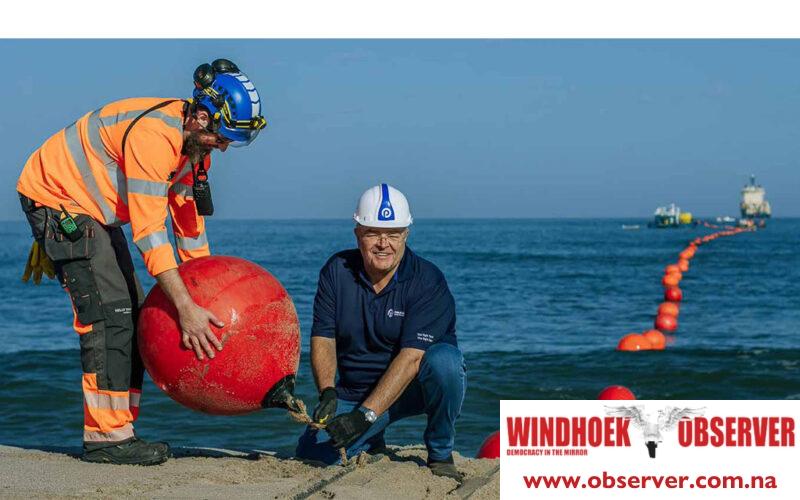CHAMWE KAIRA
Africa Finance Corporation (AFC) has said in its, ‘State of Africa’s Infrastructure 2024’ that subsea cables have a direct impact on connectivity, enable faster internet speeds, and reduce internet prices.
The report said Equinao, the latest cable that landed in Africa in 2023 is expected to increase internet speeds five-fold in Nigeria by 2025 and three-fold in South Africa and Namibia. By the same year, internet prices should drop in each country between 16 and 21%, resulting in an increase of internet penetration by 7% in Nigeria and South Africa and by 9% in Namibia.
The report said because of submarine cables, growth in Africa’s internet bandwidth between 2019 and 2023 far outpaced Asia and Latin America, 44% to 32% and 31% respectively.
By the end of 2022, total inbound international bandwidth into Africa reached 36.7, Terabyte per second (Tbps), split between 12.9 Tbps to North Africa and 23.8 Tbps to sub-Saharan Africa where South Africa, Kenya, and Nigeria account for a concentrated two-thirds of all volumes.
AFC said the total design capacity from the 33 submarine cables connected to subSaharan Africa could provide well over 800 Tbps – yet less than 24 Tbps was supplied to the region by the end of 2022.
“For Africa’s first mile infrastructure to be effective and resilient, it needs more diversity in routes and ownership, especially as older sub-sea cables start to reach the end of their lifespan. Most coastal countries only have one landing station and very few cables extend all the way to South Africa. Most networks pass through Africa on their way to Europe but their landing in places like Djibouti or Egypt has historically played a limited role in connecting the continent,” the report said.
The report noted that while hundreds of millions of Africans have been brought online, middle mile and last-mile infrastructure remain limited and regional networks are yet to be built across several parts of the continent.
“Limited regional infrastructure and network deficiencies contribute to high costs of connectivity that price most Africans out of the digital world.”
Africa’s population is expected to grow to 2.4 billion by 2050 from its current 1.4 billion. The report said hundreds of millions of people under the age of 30 will be drawn increasingly to some of the fastest growing cities in the world, from Lagos to Dar es Salaam.
Africa’s digital infrastructure has been widely seen as a success story for its ability to keep attracting global capital over the years and managing to secure substantial private sector participation, the AFC said.
Despite significant progress in undersea internet cables and backbone infrastructure, the continent remains far behind much of the rest of the world in the middle mile segment and last mile connections.
The AFC noted that 60% of Africans have no access to internet while lack of fibre prevents the distribution of quality bandwidth more locally.
“Digital services also remain too expensive and affordability is a major barrier to wider penetration as millions are still priced out of digital services.”
All African coastal countries now have at least one subsea cable landing, except for Eritrea, the report added.




